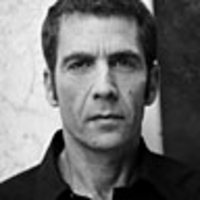From Flannery O’Connor to Shannon Burke, the author of Permanent Midnight and Bad Boys II picks his favorites from the dark side of literature. His latest novel, Pain Killers, was recently released by William Morrow.

Black Fliesby Shannon Burke
“What I love about it is the spirit of camaraderie and the twisted survival-of-the-sickest humor that Burke captures so beautifully.”
Steve Gaghan, who wrote Traffic, turned me on to this book, which is about paramedics working New York City's darkest corners, and the strategies they employ to survive. This is a novel packed with descriptions of dark corners, both urban and psycho-emotional. What I love about it, among other things, is the spirit of camaraderie and the twisted survival-of-the-sickest humor that Burke captures so beautifully. Some books, you really get the sense the author has earned the right to write. And Black Flies is one of those books.

Nazi Literature in the Americasby Robert Bolano
“The late Chilean writer has structured this novel as a fake encyclopedia, giving him room to create a battery of literary fascists.”
Justly huge for The Savage Detectives and his 1,000-plus-page masterpiece, 2666, the late Chilean writer has structured this novel as a fake encyclopedia, giving him room to create a battery of literary fascists, all with their delusions, beliefs, and fetishized devotion to the Reich intact. The buried inference in the text, and the blackest joke of all, is that, while fake, these characters and their varied association with Hitler's vision of a Happy Nordic Tomorrow point to the continuing existence of such beliefs in our own time, in our own hemisphere, if not in the hemispheres of our own brains.

Wise Bloodby Flannery O’Connor
“I love novels that are disturbing in their humor, and truer about human nature than more somber efforts marched out in the cloak of what Terry Southern used to refer to as ‘Quality Lit.’”
Hazel Motes, the non-believing evangelist at the heart of this novel, was one of O'Connor's—and American literature's—most vivid, profound, and hysterical creations. He is a figure of the Deep South who can't seem to shake his savior, though he has constructed a church around the belief that he doesn't exist. Sentences from this perfect and perfectly demented comic novel continued to resonate in my ears after I read it. In particular, a snippet capturing the central character's reaction to the Son of God. Jesus, the author writes, "moves from tree to tree in the back of his mind, a wild ragged figure motioning him to turn around and come off into the dark..." I love novels that are disturbing in their humor, and truer about human nature than more somber efforts marched out in the cloak of what Terry Southern used to refer to as "Quality Lit." Ms. O'Connor transcended mere fiction, creating work of some kind of transcendent comedy.

The Room by Hubert Selby, Jr.
“Selby trafficked in humanity's damned and, like Dostoyevsky before him, mines beauty from the horror of simply being alive.”
Roughly outlined, this is a book about a convict sitting in a room. Period. What ensues between page 1 and page 288, when it ends, might be called a psychotic phantasmagoria, one man's serial fantasies of revenge and torture and sadism, scenarios of such epic derangement the only question to ask is not, "How did Selby come up with them?" but, “How did he keep from going mad himself in their creation?” What elevates this from mere psycho-prose sensationalism—and what defines Selby's God-given genius—is the way he renders extreme states of mind with a humanity so deep that, in the end, the most staggering revelation is that, whatever we tell ourselves we are made of, Selby's monster-humans are made from the very same stuff. Selby trafficked in humanity's damned and, like Dostoyevsky before him, mines beauty from the horror of simply being alive.

The Dick Gibson Showby Stanley Elkin
“A fast-talking, nonstop joyride through the 3 a.m. brain of late-night Anywhere, USA.”
The late Stanley Elkin was a word-drunk poet of American lingo, a relentless compiler who stuffed his works with all the detritus of America-speak, drawing deep meaning and deeper laughs from the most mundane and ludicrous elements of popular culture. The plot, such as it is, involves an itinerant disc jockey who moves from city to city, job to job, taking on and shedding identities, told in a frenzied prose that reads like a Borscht Belt tummler with his toe in a puddle and his finger in a light socket. Page for page, sentence for sentence, Elkin performs the most astonishing verbal acrobatics, mining laughs from product names, cracker-barrel Americana, and the great cornball maw of popular culture. His is the Aesthetic of Spritz. A fast-talking, nonstop joyride through the 3 a.m. brain of late-night Anywhere, USA.
Plus: Check out Book Beast, for more news on hot titles and authors and excerpts from the latest books.
Jerry Stahl is author of the narcotic memoir classic Permanent Midnight; I, Fatty (film rights optioned by Johnny Depp); Perv—A Love Story and Plainclothes Naked. He has written extensively for film and television, and his much-anthologized fiction and journalism have appeared in Esquire, Details, Playboy, Black Book, LA Weekly, and Tin House. He lives in Los Angeles.





